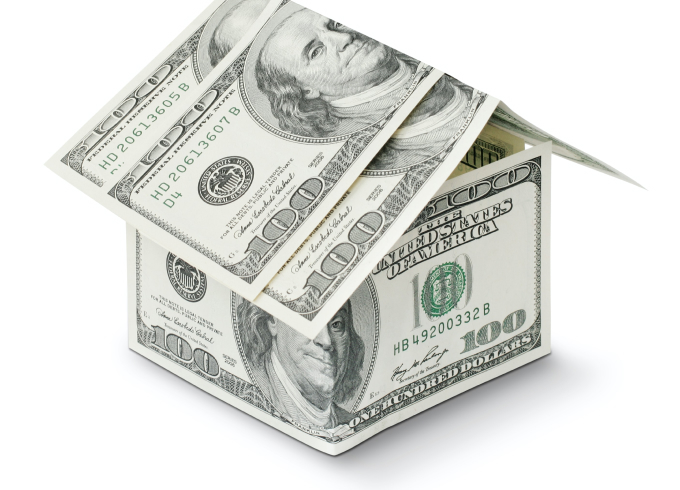
CAPITAL GAINS WHEN SELLING A HOUSE
The article explains what capital gains tax is, how it works on real estate, and how to avoid it. Capital gains tax is a major expense when selling a house, but there are several methods for avoiding it. The most important thing to remember is to keep track of all of your transactions and document them properly.
Tips and Tricks on How to Manage Capital Gains Tax
When you sell your home, there is more to consider than just the sale price. One important factor in the sale of a house is the capital gains tax. What is this tax? How does it work? And most importantly, how can you avoid it? In this blog post, we will answer all of these questions and more. By understanding capital gains tax when selling a house, you can make sure that you are taking every step possible to keep as much money in your pocket as possible!
What is a Capital Gains Tax?
Capital Gains Tax, also called capital gains tax on real estate and capital gain property, is a form of tax that is levied when the owner of an asset sells it. This type of taxation occurs when the difference between what is sold for and what was originally paid for becomes large enough to be considered a taxable event.
Capital gains taxes are applied to a variety of different types of assets, but real estate is one of the most common. When you sell your home, you will be required to pay capital gains tax on any increase in its value since it was purchased.
How Does the Capital Gains Tax Work?
The capital gains tax is a tax that is levied when the owner of an asset sells it. This type of taxation occurs when the difference between what is sold for and what was originally paid for becomes large enough to be considered a taxable event.
Capital gains taxes are applied to a variety of different types of assets, but real estate is one of the most common. When you sell your home, you will be required to pay capital gains tax on any increase in its value since it was purchased.
The amount of tax that you will owe is based on the difference between the sale price and your original purchase price, minus the cost of any improvements that you may have made to the property.
How Can You Avoid Paying the Capital Gains Tax?
There are a few different ways that you can avoid paying capital gains tax when selling your house. By understanding these methods, you can make sure that you are taking every step possible to keep as much money in your pocket as possible!
Methods for Avoiding Capital Gains Tax:
1. Reinvest the Proceeds From the Sale Back Into Another Property
If you reinvest the proceeds from the sale of your home back into another property, you can avoid paying capital gains tax on the sale. This is because the IRS considers this to be a “like-kind” exchange, which is not subject to taxation.
There are a few things that you need to keep in mind if you choose to use this method. First, the property that you purchase must be of equal or greater value than the one that you sold. Second, you must complete the transaction within 180 days of selling your old home.
2. Use the Home for Business Purposes
If you use the home for business purposes, you can avoid capital gains tax on the sale. This is because the IRS considers any home that is used for business to be a “property improvement”, which exempts it from taxation.
To qualify for this exemption, you must meet a few requirements. First, the property must be used exclusively for business purposes. Second, the home must be your primary place of work. Third, the property must have been used for business for at least two of the five years prior to its sale.
3. Gift the Home to a Family Member
If you gift the home to a family member, you can avoid capital gains tax on the sale. This is because the IRS considers any home that is gifted to be a “property improvement”, which exempts it from taxation.
To qualify for this exemption, you must meet a few requirements. First, the property must be gifted to a family member who is related to you. Second, the property must be used as the primary residence of the recipient. Third, the property must have been used as the primary residence of the donor for at least two of the five years prior to its sale.
4. Donate the Home to a Charity
If you donate the home to a charity, you can avoid capital gains tax on the sale. This is because the IRS considers any home that is donated to be a “property improvement”, which exempts it from taxation.
To qualify for this exemption, you must meet a few requirements. First, the property must be donated to a charity that is recognized by the IRS. Second, the property must be used as the primary residence of the recipient. Third, the property must have been used as the primary residence of the donor for at least two of the five years prior to its sale.
5. Sell the Home to a Relative at a Discounted Price
If you sell the home to a relative at a discounted price, you can avoid capital gains tax on the sale. This is because the IRS considers any home that is sold to a relative at a discounted price to be a “property improvement”, which exempts it from taxation.
To qualify for this exemption, you must meet a few requirements. First, the property must be sold to a relative who is related to you. Second, the sale must take place within two years of the donor’s death. Third, the property must be sold for less than its fair market value.
The capital gains tax can be a major expense when selling a house. However, by understanding how it works and using one of the methods listed above, you can avoid paying it! The most important thing to remember when avoiding capital gains tax is that you need to keep track of all of your transactions. Make sure to document the purchase and sale prices of all of the properties that you own, as well as any improvements that you make. This information will come in handy if you are ever audited by the IRS.
Tips for Minimizing Your Capital Gains Tax Liability
There are a few things you can do to minimize your capital gains tax liability when selling a house. Here are a few tips to help you out:
- Wait until after the new year to sell. By waiting until after January 1st, you’ll avoid paying taxes on the sale for that year.
- Claim the home as your primary residence for at least two of the five years prior to selling. If you’ve lived in the home as your primary residence for at least two out of the last five years, you can claim it as a “primary residence” and avoid paying taxes on the sale.
- Changing your address with the post office doesn’t always count as living in the home. You’ll need to file a homestead exemption form with your county to prove that you actually lived there.
- If you don’t meet the two-year requirement, you can still claim an exemption if you have lived in the home for at least five of the eight years prior to selling. This exemption is only available to sellers who are single, married filing separately, or head of household.
If you’re in a higher tax bracket, these exemptions may not save you as much money as you’d like. In that case, you might want to consider:
- Selling the home before December 31st. If you sell the home before December 31st, you’ll have to pay taxes on the sale for that year. However, if you wait until after January, you won’t have to pay taxes for the following year.
- Investing in a property that is considered a “like-kind” investment. When you sell a primary residence, you can defer the taxes by reinvesting the proceeds into another property that is considered a “like-kind” investment.
These are just a few tips to help you minimize your capital gains tax liability when selling a house. For more information, be sure to speak with a qualified tax professional. They can help you figure out what will work best for your specific situation.
The Bottom Line
The capital gains tax can be a major expense when selling a house. However, by understanding how it works and using one of the methods listed above, you can avoid paying it! Just be sure to keep track of all of your transactions and document everything properly to avoid any issues with the IRS.
Thank you for reading! We hope this article was helpful. Please share it with your friends or family if you found it useful. And remember, we are always here to help if you need us! If you have any questions about capital gains taxes or other tax-related topics, please feel free to contact us. We would be happy to help!







